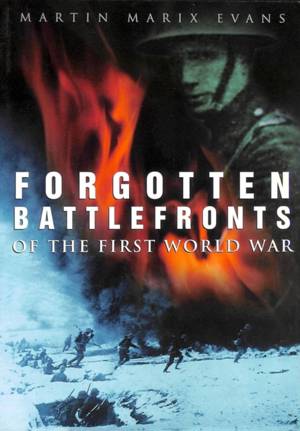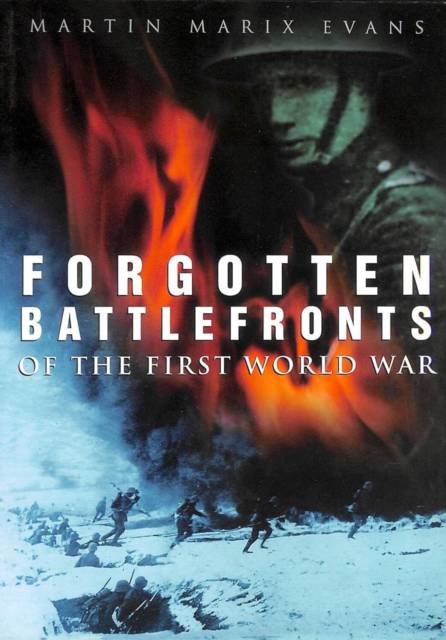
- Afhalen na 1 uur in een winkel met voorraad
- Gratis thuislevering in België vanaf € 30
- Ruim aanbod met 7 miljoen producten
- Afhalen na 1 uur in een winkel met voorraad
- Gratis thuislevering in België vanaf € 30
- Ruim aanbod met 7 miljoen producten
Zoeken
€ 23,95
+ 47 punten
Omschrijving
The struggle between Germany and the Allies along the Western Front is for many the most familiar element of World War I. However, many less well-known theaters of conflict, key to the overall progress and conduct of the war, hold as much relevance to both the traveler and the armchair enthusiast. In this work, the author sheds light on the fighting methods of the protagonists in less familiar settings, whether in the Italian Alps or in the cloying heat of the Greek coast. In the first weeks of fighting, stubborn Belgian resistance resulted in a desperate battle to stabilize the front and compelled the German advance to be diverted against the British at Ypres. French determination to win back Alsace-Lorraine plunged the Vosges region into fluid conflict for over a year from August 1914 before both sides realized the impossibility of a decisive success in this area. The three-year struggle between Italy and Austria across the alpine passes was to draw German, British and French forces into the region. Anglo-French assistance to the Serbs through Salonika produced a standoff between the Allies and the Central Powers which was only to be resolved in the last months of the war.
Specificaties
Betrokkenen
- Auteur(s):
- Uitgeverij:
Inhoud
- Aantal bladzijden:
- 272
- Taal:
- Engels
Eigenschappen
- Productcode (EAN):
- 9780752450476
- Verschijningsdatum:
- 1/10/2009
- Uitvoering:
- Paperback
- Formaat:
- Trade paperback (VS)
- Afmetingen:
- 170 mm x 246 mm
- Gewicht:
- 680 g

Alleen bij Standaard Boekhandel
+ 47 punten op je klantenkaart van Standaard Boekhandel
Beoordelingen
We publiceren alleen reviews die voldoen aan de voorwaarden voor reviews. Bekijk onze voorwaarden voor reviews.








